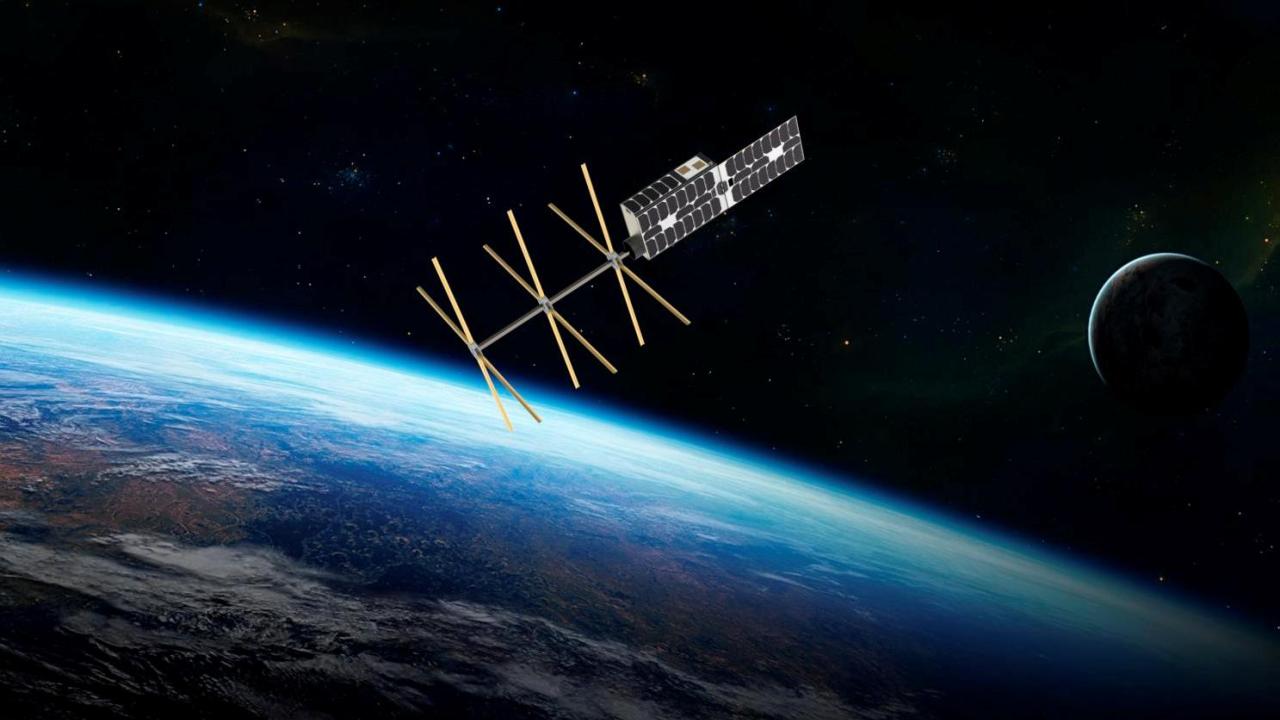Satellite-based VDES to strengthen West Africa's maritime sector

Image courtesy Sternula
Danish commercial satellite operator, Sternula, has just signed a partnership agreement with the Ghana Maritime Authority. The new agreement is part of a strategic sector cooperation between Danish and Ghanaian maritime authorities and serves the purpose of strengthening the maritime sector in Ghana and West Africa.
More specific, the Ghana Maritime Authority will be using Sternula’s e-Navigation connectivity service – a VHF Data Exchange System (VDES) solution – enabling reliable and accurate maritime navigational warnings to seafarers by the local authorities, while enhancing safety in Ghanaian waters.
"Naturally, we are very satisfied with the new agreement that will contribute to the positive maritime development of Ghana. Almost 90% of West Africa’s trade is handled by sea, so we see a great potential in implementing our satellite-based e-Navigation technology to boost the entire Ghanaian maritime sector, said Sternula CEO Lars Moltsen.
As one of Africa’s leading seafaring nations, Ghana is attracting more and more merchant traffic in and around the country’s largest ports. Therefore, it has become of governmental interest to integrate new technology to improve safety as well as efficiency of maritime trade and transport along the Ghanaian coast.
"In line with our ambitious goals, today we are entering into a Memorandum of Understanding with the first Danish satellite-provider in advanced micro-satellites. This marks the beginning of a new partnership that could lead to the deployment of cutting edge technologies in our maritime domain,” the Director General of the Ghana Maritime Authority, Mr Thomas Alonsi said. "Under the agreement, the Ghana Maritime Authority will be testing Sternula’s market leading e-Navigation connectivity service – a VHF Data Exchange System (VDES) solution – enabling reliable and accurate Maritime Safety Information (MSI) warnings to be sent to seafarers by local authorities to enhance safety in our waters. This, it is envisaged, will help Ghana to gain a better and more accurate picture of the traffic in our waters, which – in these times of maritime insecurity – is an urgent necessity.”
While the maritime sector is becoming increasingly digitized, the interest in so-called e-Navigation, including VDES, has seen a rise. Recently, the International Maritime Organization launched an e-Navigation Implementation Plan Strategy in which digital solutions will play a vital role in enhancing maritime purposes:
Project coordinator at The Danish Maritime Authority, Christopher Saarnak, said: "The e-Navigation strategy implementation plan was formalised under IMO several years ago. VDES is a new communications technology and a key element in realising e-Navigation. It will help both Danish and Ghanaian maritime authorities to interact with ships in our waters for a number of purposes, such as port calls and distribution of critical information without the need for internet onboard the ships."
Now, Sternula is currently building the world’s first VDES satellite network, which will be commercially available to maritime service providers and authorities. VDES is a new communication technology built on the capabilities of the well-known AIS technology, which supports the development of e-Navigation solutions.
Lars Moltsen said: "Unstable navigational coverage is often a challenge for maritime authorities in countries with infrastructural insufficiencies. Therefore, it has become natural to look towards digital services, such as satellite-based VDES, which can provide more stable, fast, and reliable coverage at much lower cost to ship owners and authorities, thus improving maritime safety and efficiency.
"Simultaneously, the COVID-19 situation has shown how digital solutions can prove beneficial in maritime activities that would normally require physical presence, such as onboard inspections. With VDES satellite services, authorities can communicate with vessels in areas with otherwise limited coverage without being physically present in the area."
As an extension of AIS technology, VDES is expected to become mandatory under the Safety-of-Life-at-Sea (SOLAS) convention by the International Maritime Organisation. Therefore, seafaring countries, such as Ghana, should start adapting to future technologies:
Lars Moltsen said: "Ghana is a great example of a leading maritime nation in its region that has an urgent need to implement SOLAS defined services in a future-proof manner. As the technological advancement continues and regulatory standards change, more and more countries need to embrace the digital development to secure a sufficient infrastructural backbone in the maritime area. It shows that the digital transformation has no intentions of abating."
He is supported by the International Association of Marine Aids to Navigation and Lighthouse Authorities (IALA). Omar Frits Eriksson, Deputy Secretary-General, IALA/AISM, said: "IALA is working towards harmonisation of Aids-to-Navigation and helps coastal nations to implement IMO and IALA standards. IALA has been actively working for the standardisation of VDES, which we see as a technology that makes it much easier for maritime authorities to claim conformance to such standards."
Sternula will be offerings its VDE-SAT infrastructure enabling VDES on a global scale from 2023.
Stay up to date
Subscribe to the free Times Aerospace newsletter and receive the latest content every week. We'll never share your email address.

